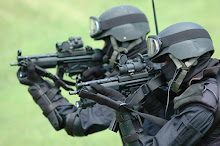
US President Barack Obama has signed an executive order mandating new financial sanctions on North Korea, senior administration officials say. The sanctions will hit eight North Korean "entities" and four individuals, targeting the trade in arms, luxury goods and narcotics.
The new sanctions come after the sinking of a South Korean warship in March, in which 46 sailors died. North Korea has denied responsibility for the sinking. But an international investigation blamed Pyongyang for the sinking.
The US Treasury Department said the sanctions were aimed "at freezing the assets of [weapons of mass destruction] proliferators and their supporters thereby isolating them from the US financial and commercial systems".
'Act of war'
Secretary of State Hillary Clinton announced last month that US sanctions against North Korea would be expanded.
The US has tried to drive international efforts to stop North Korea's efforts to build nuclear weapons.
North Korea indicated last year that any attempt to blockade the country would be regarded as an "act of war".
The country has been seeking nuclear weapons for some years and carried out its second nuclear test last year, prompting international condemnation.
The BBC's Laura Trevelyan says current US policy is to ratchet up economic sanctions against the North and carry out joint American-South Korean naval exercises.
But analysts say even as these new sanctions are announced, the State Department is debating whether to take a new approach, as there is little evidence that North Korea is either retreating from its nuclear programme or being less belligerent towards its neighbour South Korea.
Meanwhile, North Korean leader Kim Jong-il has told Beijing he hopes for an early resumption of six-party nuclear talks, China's state media has reported.
The comments came as confirmation that Mr Kim was in China at the weekend, his second visit to the country this year.
Mr Kim, who is believed to be ailing after suffering a stroke two years ago, rarely travels abroad, but last visited China in May.
His son Kim Jong-un, who observers believe is being prepared to take over the leadership, is widely speculated to have accompanied him on his latest visit, but this has not been confirmed.
Correspondents say the trip could have been aimed at securing Beijing's backing for the eventual handover of power.
( www.bbc.co.uk)
The new sanctions come after the sinking of a South Korean warship in March, in which 46 sailors died. North Korea has denied responsibility for the sinking. But an international investigation blamed Pyongyang for the sinking.
The US Treasury Department said the sanctions were aimed "at freezing the assets of [weapons of mass destruction] proliferators and their supporters thereby isolating them from the US financial and commercial systems".
'Act of war'
Secretary of State Hillary Clinton announced last month that US sanctions against North Korea would be expanded.
The US has tried to drive international efforts to stop North Korea's efforts to build nuclear weapons.
North Korea indicated last year that any attempt to blockade the country would be regarded as an "act of war".
The country has been seeking nuclear weapons for some years and carried out its second nuclear test last year, prompting international condemnation.
The BBC's Laura Trevelyan says current US policy is to ratchet up economic sanctions against the North and carry out joint American-South Korean naval exercises.
But analysts say even as these new sanctions are announced, the State Department is debating whether to take a new approach, as there is little evidence that North Korea is either retreating from its nuclear programme or being less belligerent towards its neighbour South Korea.
Meanwhile, North Korean leader Kim Jong-il has told Beijing he hopes for an early resumption of six-party nuclear talks, China's state media has reported.
The comments came as confirmation that Mr Kim was in China at the weekend, his second visit to the country this year.
Mr Kim, who is believed to be ailing after suffering a stroke two years ago, rarely travels abroad, but last visited China in May.
His son Kim Jong-un, who observers believe is being prepared to take over the leadership, is widely speculated to have accompanied him on his latest visit, but this has not been confirmed.
Correspondents say the trip could have been aimed at securing Beijing's backing for the eventual handover of power.
( www.bbc.co.uk)

No comments:
Post a Comment